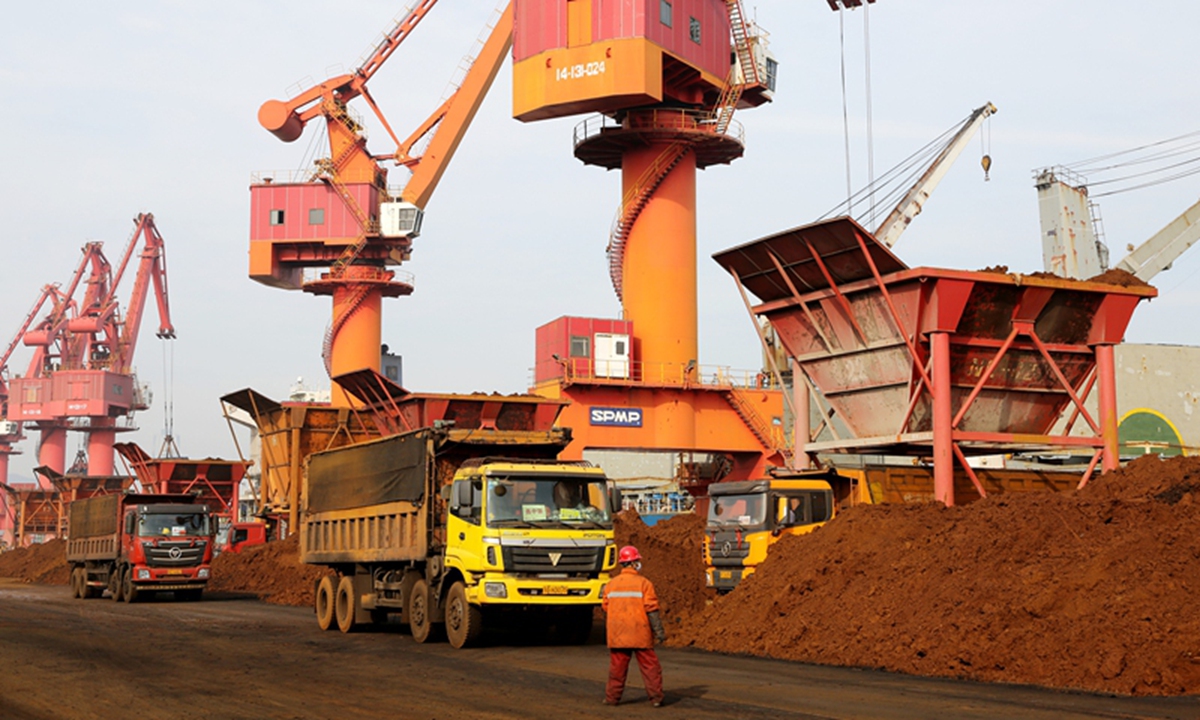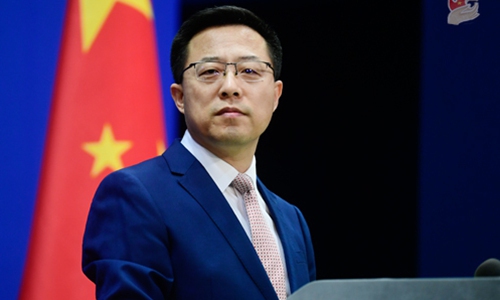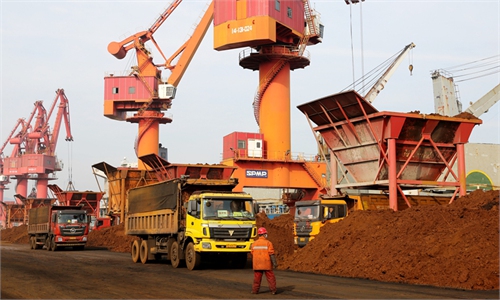
Iron ore Photo:VCG
Guinean authorities have been turning up the pressure on multinational mining companies to pay more royalties for bauxite and iron ore mining projects in the country, which could "hit China's efforts to make inroads into the West African nation," the South China Morning Post reported on Monday.In early April, Guinean authorities asked international mining companies to present plans for the construction of bauxite refineries within Guinea by the end of May, with the aim of turning mineral wealth into economic development, according to media reports. Last month, the authorities ordered the suspension of all activities at the Simandou iron ore deposit.
China and the Western African country have a traditionally close friendship, and there is no doubt that on matters of bilateral relations, China stands ready to work with the Guinean side to promote win-win cooperation. Protecting the interests of Chinese companies while promoting the development of China-Guinea relationship in the current situation could be challenging. However, China has rich experience in investing in Africa, which is why it is believed that as long as China adheres to the basic principle of pursuing win-win development in oversea investment cooperation, it will be able to overcome the challenge.
Some observers have raised concerns that Guinea's tough attitude toward multinationals may create certain risks to China's mineral investment in the country. Certainly, there are risks, but there are also ways to avert such risks. For example, from the perspective of production capacity cooperation, Guinean authorities' requirements for local refineries may end up accelerating Chinese companies' pace in investing and constructing alumina plant projects abroad.
Due to the weak infrastructure and industrial base in the West African nation, most mining companies usually export their bauxite production to other countries for follow-up processing. But that doesn't mean they are unwilling to build local factories if conditions permit. In fact, some media reports in the past have already suggested that some Chinese companies have already conducted feasibility study or made preparations for setting up alumina plants in Guinea.
For instance, in July 2020, a feasibility study for an alumina project in Guinea submitted by Aluminum Corporation of China was approved by Guinean experts organized by local authorities, according to Chinese media reports. But perhaps due to the global COVID-19 pandemic and other factors, the progress of the alumina project has been delayed.
But it is clear that such production capacity cooperation could be mutually beneficial. For countries like Indonesia that have abundant bauxite resources, over the past years, the cooperation with China on alumina production capacity has not only extended the local industrial chains, but also promoted local employment and industrialization.
Of course, it should be noted that although Guinea's eagerness to leverage its mineral resources to lift its economy is understandable, it is essential for local authorities to provide necessary policy support and guarantees for foreign companies. If anything, uncertainty as a result of domestic political change is something local authorities should avoid, because that's not conducive to attracting foreign investment and the long-term development of the local economy.
China's investment in Africa is aimed at seeking mutual benefits while expanding economic cooperation with all parties. Against the backdrop of the drastic changes in the world, Chinese companies may face various problems and obstacles operating abroad. However, China's pursuit of win-win cooperation with countries including Guinea has not and will not change, it is hoped that relevant countries will also move in the same direction.



